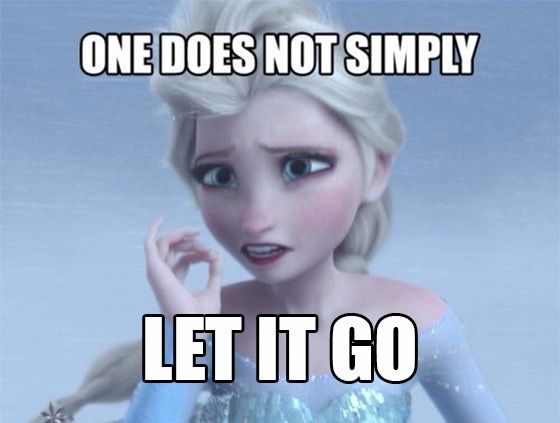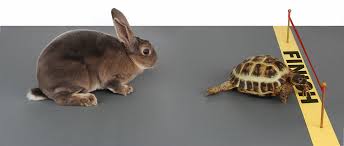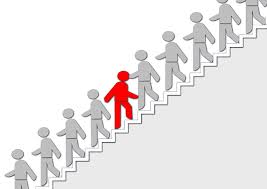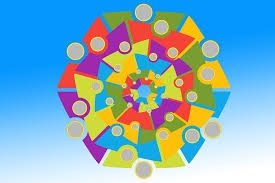After working all day at a retirement complex, I stopped by a local Dutch Bros for a caffeinated pick-me-up. In the traditional fashion of a Dutch Bro, the barista wanted to know my life history. He causally leaned out the window and asked, “What are you up to today? Going home from work or on your way to work?”
“No,” I replied. “I just got done with work. Now I’m going to school.”
“Cool! What class are you taking?” He asked in enthusiastic Dutch Bro fashion.
“Oh,” I corrected, gently. “I’m actually teaching class. Public Speaking.”
He furrowed his brow. “Wait. So, you left work… and now you’re going back to work?”
I laughed at his confusion. “Yeah, I guess so,” I answered. “Although teaching never really feels like work.”

And that’s when I had a career-changing epiphany. I worked full-time as the Director of Resident Relations at a luxury retirement complex. I enjoyed my job, being a liaison to residents and managing a department of 28 people, but it definitely felt like work. Whereas, my “part-time job” of being an evening adjunct instructor and assistant coach for the Speech & Debate (or Forensics) Team was fun and invigorating.
I had the realization right there in the Dutch Bros line (perhaps one more reason it always takes so long.) Maybe, just maybe, I should be spending 40 hours a week doing what I love instead of only squeezing in a few classes after “work.”
By this time, my oldest son was not quite one. Having a baby had changed my priorities, but it had not, yet, significantly changed my work schedule. I was still working my normal 8am-4pm job, then teaching 2-3 evening and online classes per week, then traveling to California (and elsewhere) about twice a month for speech tournaments… now with a baby in tow. Something had to give.
By all intents and purposes, it should have been coaching Forensics. This took up 10-15 hours of coaching per week in addition to traveling on the weekends, and it paid the least. But, I couldn’t give it up. I couldn’t let go.

I took some time to reflect. I realized that I loved teaching and coaching. I loved connecting with students and helping them to become better speakers. I loved being a coach and leading a team. I’m pretty very competitive. Forensics gave me an outlet for my competitive drive and my creativity. Teaching gave me a platform to continue to publicly speak and to kindle students’ love of learning, too.
Sometimes inspiration comes in the form of a mentor or a beloved family member. I certainly have stores to draw from. My favorite teacher in high school, Mrs. Farrington, who taught Speech (This should have been a sign) and was the club adviser for TAFE, the Texas Association for Future Educators (yet another sign.) I became the President of the club, mostly just to get to continue working with Mrs. Farrington. I signed up for every speech competition she recommended. (My awards include being the Hutchinson County Cattelwomen’s Beef Ambassador for both 2000 and 2001. I can’t make this up.) Mrs. Farrington is also the person who first introduced me to the world of Speech & Debate. I competed for 3.5 years in high school, then went on to compete in college as well. I still remember her combination of classy authority while also making me feel valued, like an “insider” working with her not just for her. As a high school student, that was a great feeling, but as an adult, we still desire this feeling of inclusion. I strive to impart these feelings of autonomy and support for my students.
I also remember my grandfather, who retired from the Navy and came back to our home town to run the family business, an office supply store. But when Walmart moved to our small town, our little store (like so many others) went out of business. My grandfather, “Gramp,” went back to school. He drove to the nearest college 2 hours away to complete his degree in Special Education. Upon graduation, he accepted a teaching position at a middle school in an even tinier town than ours almost 3 hours away. He rented a small apartment across the street from the middle school and walked to work every day. He came home on the weekends, but sometimes we’d go stay with him, which felt like a special treat. A few times, I even got to go to work with him. I met his students and his teachers aids; I observed the rapport he had with his students and the passion he had for connecting with students who struggled in the education system. I saw my grandpa in a new light. He seemed so happy and capable. I was proud to share my smart and funny grandfather with these students. His colleagues shared with me glowing complements about him as I drank my hot chocolate from a coffee mug in the teacher’s lounge. I like to think I got my sense of humor from him, and this is a vital tool for my teaching.
These are just two pillars in my life who inspired me, long before I knew that I would someday become a teacher. I believe that no matter what career path I chose, these inspirational figures would still have guided and shaped me to be my best.
But sometimes, inspiration comes in a less obvious form… like perhaps the form of a Large Caramel Annihilator from Dutch Bros. So to that fateful barista, I say “Thanks a latte.”








